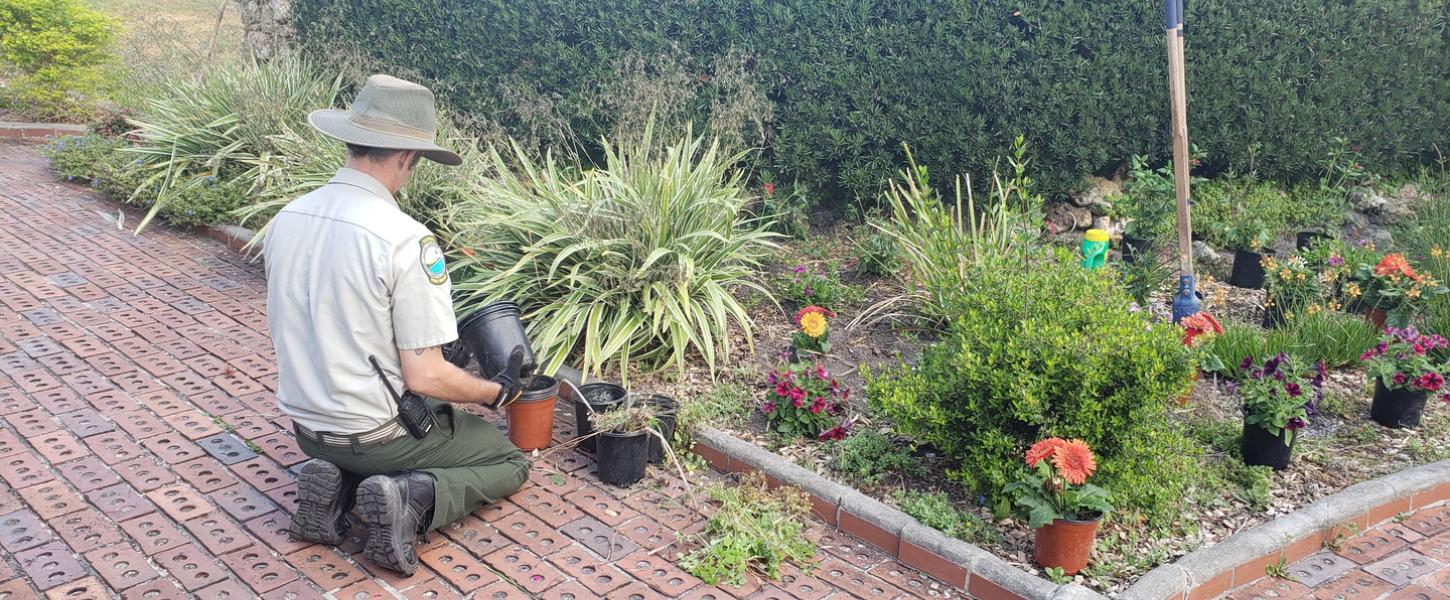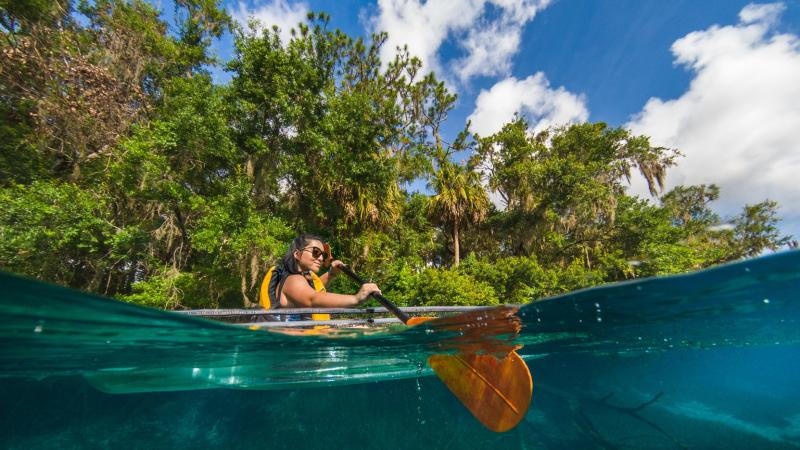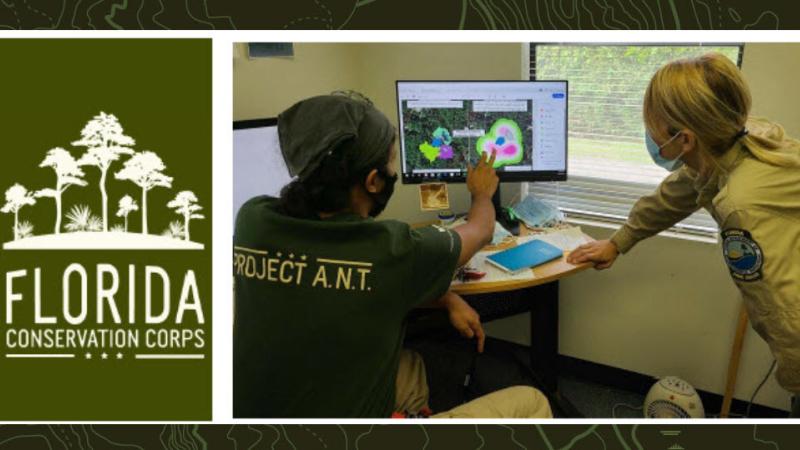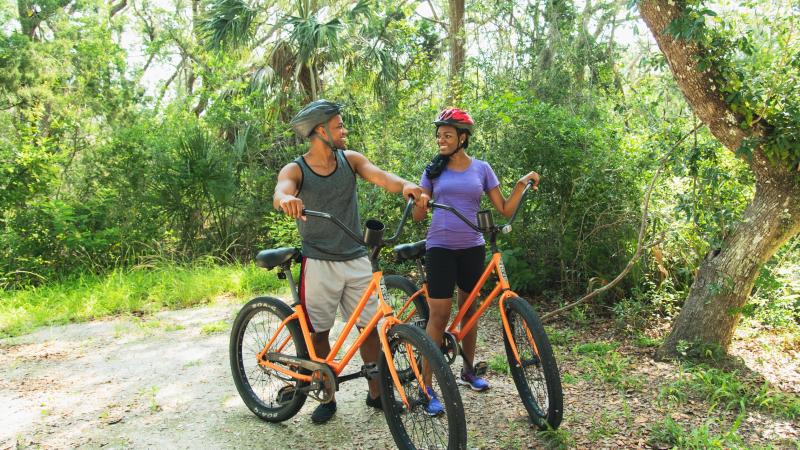A State Park in Your Backyard?

The Florida Park Service is dedicated to keeping park habitats healthy and biodiverse. We can apply what we know about the environment to use Florida-Friendly Landscaping™ (FFL) at homes and businesses, kind of like a low-maintenance, mini-state park in your backyard!
What you do in your yard can impact Florida's springs, rivers, wetlands and wildlife. Irrigation of lawns and landscaping in Florida represents the single largest use of water from our municipal water supplies.
This water use impacts the aquifer, the source of our drinking water and water that Florida's magical springs and other ecosystems depend upon. The overuse of fertilizers and pesticides on lawns are major sources of nutrient pollution in our lakes, rivers and bays.
Florida-Friendly Landscaping™ uses low-maintenance plants and environmentally sustainable practices. Landscaping the Florida-Friendly way benefits the environment by conserving water, reducing waste, creating wildlife habitat and preventing erosion. By picking plants to match local conditions, such as native plants, you can save water and fertilizer and support biodiversity.
The Florida-Friendly Landscaping program is led by the University of Florida/IFAS Extension in partnership with the Florida Department of Environmental Protection.
Florida-Friendly Landscaping is based on nine basic principles. These guidelines can help you create a landscape that sustains Florida’s natural resources. Any yard can be Florida-Friendly if it’s designed and cared for according to these principles.
- Right Plant, Right Place: Plants selected to suit a specific site will require minimal amounts of water, fertilizers and pesticides.
- Water Efficiently: Irrigate only when your lawn needs water. Efficient watering is the key to a healthy yard and conservation of limited resources.
- Fertilize Appropriately: Misuse of fertilizer can harm your yard and the environment
- Mulch: Maintain two to three inches of mulch to help retain soil moisture, prevent erosion and suppress weeds.
- Attract Wildlife: Plants in your yard that provide food, water and shelter can support Florida's diverse wildlife, from birds to butterflies.
- Manage Yard Pests Responsibly: Unwise use of pesticides can harm people, pets, beneficial organisms and the environment.
- Recycle: Grass clippings, leaves and yard trimmings composted and recycled on-site provide nutrients to the soil and reduce waste.
- Reduce Stormwater Runoff: Water running off your yard can carry fertilizer, pesticides, soil and debris into water bodies. Reduction of this runoff helps keep water resources clean.
- Protect the Waterfront: Waterfront property, whether on a river, stream, pond, bay or beach, is very fragile and should be carefully protected to maintain freshwater and marine ecosystems.
Learn more about using these principles to beautify a new garden, house or business landscape.
Don’t have a yard? Check out resources for starting a community garden, helping birds nest and forage, space-saving container gardens and potted indoor plants.
There are also some exciting things on the horizon for the program. Filming for a new season of Flip My Florida Yard will be starting soon. During the show, homeowners spend the day in a Florida State Park while Florida-Friendly Landscaping experts redesign and replant their yards to be sustainable, efficient and wildlife-friendly. Flip My Florida Yard will air in most major Florida television markets beginning in March 2021.


